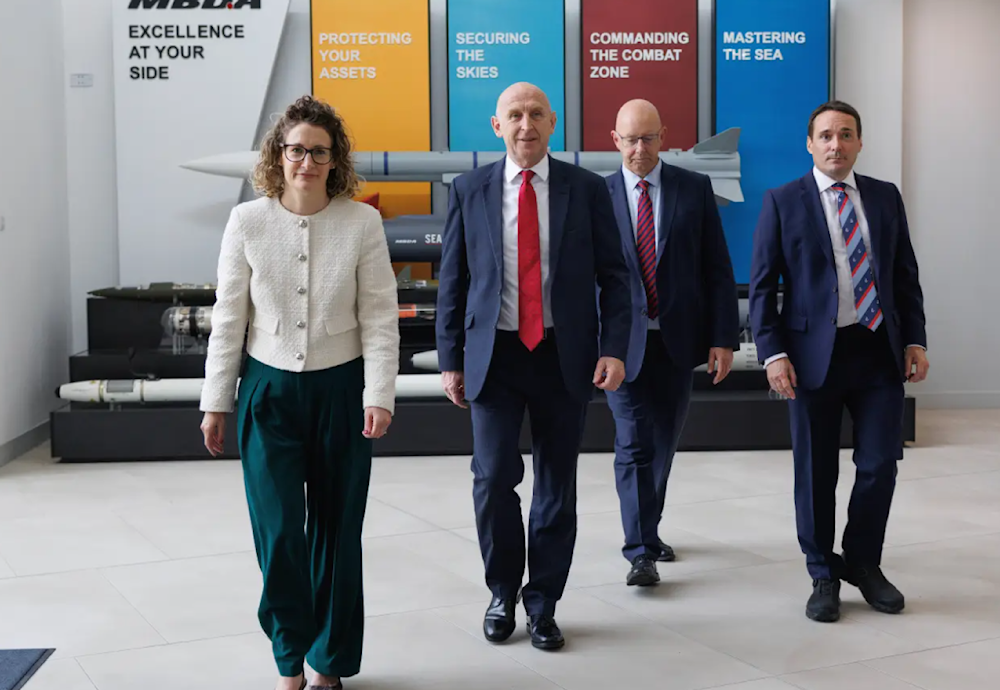UK to dramatically increase weapons production amid shortages
The UK has announced a $2 billion investment in new weapons factories and long-range arms production.
-

Britain's Defense Secretary John Healey visits the MBDA Storm Shadow factory in Stevenage, England, on May 31, 2025 (AP)
The UK will invest $2 billion in building new weapons factories as part of a major rearmament initiative, Defense Secretary John Healey announced ahead of the upcoming Strategic Defense Review, set for release Monday.
The plan includes constructing at least six new facilities to produce munitions and explosives and acquiring over 7,000 domestically manufactured long-range weapons, such as drones and missiles. Healey also committed to increasing defense spending to 3% of GDP by 2034.
“The hard-fought lessons from [Russian President Vladimir] Putin’s illegal invasion of Ukraine show a military is only as strong as the industry that stands behind it,” Healey said Saturday.
“We are strengthening the UK’s industrial base to better deter our adversaries and make the UK secure at home and strong abroad.”
Ukraine war exposes deficiencies in Western arms production
The war in Ukraine has exposed serious deficiencies in Western arms production, with senior British military officials warning for months about dangerously low stockpiles, according to the BBC.
While the UK government’s recent pledge to invest in new munitions factories has been welcomed, opposition politicians have criticized the timing. Conservative Shadow Defense Secretary James Cartlidge noted, "We welcome investment in new munitions factories, but we don’t know when they will be ready – only that these orders should have been placed months ago."
Britain has remained one of Ukraine’s most steadfast supporters in its war against Russia, especially as NATO allies in Europe move to bolster their military commitments amid growing fears that US support could wane under President Donald Trump.
Meanwhile, Moscow has consistently warned that Western military aid will only prolong the conflict without changing its outcome. Russian officials have also accused former UK Prime Minister Boris Johnson of pressuring Ukraine to abandon peace talks in early 2022, a charge Johnson has denied, though Russian Foreign Minister Sergey Lavrov dismissed his denial as a “blatant lie".

 2 Min Read
2 Min Read











